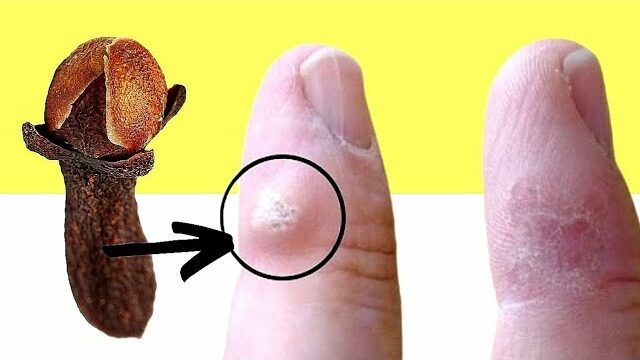
Cloves are often touted for their antiseptic and anti-inflammatory properties, making them a popular home remedy for various ailments, including warts. While it’s unlikely that cloves can remove warts in just 24 hours, they can potentially help reduce the size and discomfort of warts over time. Here’s a step-by-step guide on how to use cloves for wart removal.
Benefits of Cloves for Warts
- Antimicrobial Properties: Cloves contain eugenol, a compound with powerful antimicrobial abilities that can help in fighting the virus causing the wart.
- Pain Relief: Eugenol also acts as a natural pain reliever, which can soothe the discomfort associated with warts.
Method to Use Cloves for Warts
Ingredients:
- Clove oil (a more concentrated form of cloves and easier to apply)
- Carrier oil (such as coconut oil or olive oil, to dilute the clove oil)
- Cotton swabs or a small brush
- Bandage or medical tape
Instructions:
- Dilute Clove Oil:
- Mix a few drops of clove oil with a carrier oil to dilute it. This is important as clove oil is very potent and can cause irritation if applied directly to the skin.
- Apply to the Wart:
- Dip a cotton swab or small brush into the oil mixture.
- Apply a small amount of the diluted clove oil directly to the wart. Be careful to apply it only on the wart to avoid irritating the surrounding skin.
- Cover the Area:
- Cover the treated wart with a bandage or medical tape. This helps in two ways: it keeps the clove oil in place, allowing it to act for a longer period, and prevents the spread of the virus.
- Repeat Daily:
- Repeat this application daily. It’s unlikely that the wart will disappear in 24 hours, but you might begin to see improvement within a few days to weeks.
- Monitor the Wart:
- Keep an eye on the wart and the skin around it for any signs of irritation or allergic reaction. If you notice any adverse effects, discontinue use and consult a healthcare provider.
Additional Tips
- Test for Allergic Reactions: Before applying clove oil, especially for the first time, it’s a good idea to do a patch test on a small area of your skin to ensure you’re not allergic to it.
- Consult a Professional: For persistent or painful warts, or if you have any concerns about treating them at home, it’s best to consult a healthcare provider or dermatologist. They may recommend more conventional treatments such as cryotherapy, salicylic acid treatments, or other remedies.
Using cloves as a home remedy can be a natural way to address warts, but patience and consistent application are key to seeing results.



